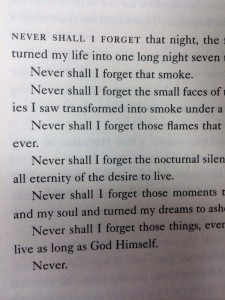The SAN Script – Tuesday, September 16


Seen here is a stunning black and white close up of a dewy rose by photographer Marta Varela. The photo is part of a popular project on Behance entitled Biodiversity by Varela, which features a portfolio of macro photos of animals, plants and insects. You can see the rest of the series on Behance.
Richard Rohr‘s Daily Meditation
Life as Participation
Your Life Is Not about You
Sunday, September 14, 2014In his letter to the Ephesians, Paul says, “I, a prisoner in the Lord, implore you to lead a life worthy of your call. Bear with one another in love, in complete selflessness, gentleness, and patience. Do all you can to preserve the unity of the Spirit by the peace that binds you together. There is one body, there is one Spirit, just as you were called into the one and same hope. There is one Lord, one faith, one baptism, one God who is Father of all, over all, through all, and within all. And each one of us has been given his own share of this grace” (4:1-7).
Once you assert there is one God eventually what you come to is that there’s one pattern, one center, one source and basically one reality, and then it’s a coherent world. You would think the three monotheistic religions would have been the first to come to this realization, but to see this you must at least be at the early mystical level. Most religion up to now has been at the magical, tribal, or rational levels. My conviction is that Paul’s mystical knowing is telling us that we are participating in something much bigger than we are. Spirit, as Paul uses the term, is this realm of shared consciousness (con-scire = to know with). Our life is first, last, and foremost a participation in this one Bigger Reality.
Your life is not about you. You are about life. You are an instance in this world of the one universal pattern that, for Paul, was uncovered, made clear, validated, and made available to all in the microcosmic life of Jesus. That’s why Jesus is called the Christ, the Messiah, the Anointed One who reveals the cosmic universal pattern that we’re all participating in, from divine conception, through human life, to divine return. You are actually more a “We” than you are an “I.”
Adapted from Great Themes of Paul: Life as Participation, discs 4 and 7 (CD)
Gateway to Silence:
I am hidden with Christ in God (Colossians 3:3).
St. Anthony Today
Teachers, I would ask you again to consider signing up for a Global Cohort student teacher for the upcoming practice teaching round. Tracy Crowe, coordinator of the program, will be at our Oct 7th staff meeting to explain how the program works. The Global Cohort students will play a key role in the development of our maker space at St. Anthony.
Sabina in all day
Program Night 6:00 – 7:00 PM
- gather in the gym at 6:00pm
- introduction of staff
- brief address by Paul
- School Council
- visits to classrooms
Coming up…
Lisa Langsford and Karen McEvoy of Learning Connections will be here on Tuesday, September 23 after school (pizza provided) to work with all of us on our technology. I will come up with a survey so we can get a sense of what you want to work on before the Tuesday.
And Finally…
Our most recent edition of the duty schedule please see Maria or me if there are any problems with this edition
Bringing Twitter to the Classroom
Highlighting vocabulary words; underlining passages; drawing stars and smiley faces in the margins—these are the hallmarks of ninth grade English class. Students are encouraged to interact with the text, almost holding a conversation with it, so they can be prepared to comment and discuss. Yet when the teacher prompts her class—“Does anyone have something interesting to share about the reading from last night?”—she is greeted with silence, broken only by light whispers of book pages.
Most of us remember these uncomfortable moments the same way we remember the awkward haircuts and wardrobes that accompanied them. But now, picture a computer screen covered in hashtags and “at” signs—#shakespeare and @3rdperiodenglish. Lively debate and direct quotes continue to fill the threads four hours after school has ended. Students upload pictures of their annotated texts and ask their classmates to help them understand the nuances of iambic pentameter.
This is Chris Bronke’s freshman English class at North High School, a public school in Downers Grove, Illinois. Last August, Bronke realized that in order to “make learning more social,” he would need to utilize the very networks on which his students socialized. Introducing Twitter to his classroom was not an impulsive decision. His mission to engage students more directly was years in the making, though he describes his pedagogical progression that led him toward Twitter as somewhat trial-and-error. When he began teaching 11 years ago, he used text-marking and active reading in his classes because these were the practices that he, himself, had learned while growing up. The trouble with these practices, he found, was that he could never know where in the reading his students were having trouble, and any feedback that he did have for them was delayed until the next day’s class—a problem that eats away at the time left for teachers to dig deeper, forcing them to spend class periods rereading and reiterating.








